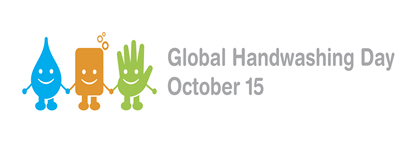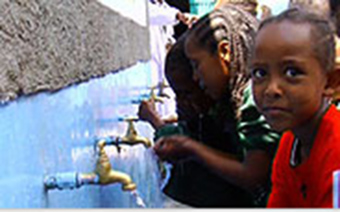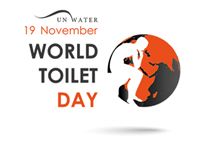3.5.2 International events
In addition to these UN resolutions, various special international events have been dedicated to WASH-related issues. They are used to create public awareness of WASH and its significant contribution to the overall economic development of a country.
Global Handwashing Day (Figure 3.5) is an annual worldwide advocacy day dedicated to increasing awareness and understanding about the importance of handwashing with soap as an easy, effective, and affordable way to prevent diseases and save lives. Celebrated annually on 15 October, Global Handwashing Day is an opportunity to encourage people to wash their hands with soap at critical times.

In Ethiopia, this event has been celebrated all over the country every year since 2005. In most cases, the celebration focuses on school children with the aim of embedding handwashing practice as part of their life skills (Figure 3.6).

World Toilet Day (Figure 3.7) is dedicated to improving people’s access to, and proper use of, a toilet. It is a day to raise the public’s awareness of the importance of toilets in blocking faecal-oral disease transmission and the need for all people to have access to a toilet. World Toilet Day has been celebrated in Ethiopia every year on 19 November since 2012.

World Water Day (Figure 3.8) is marked on 22 March. Since 1993 it has been celebrated around the world, every year focusing on a different issue of water supply and sanitation.

In summary, the international initiatives and events that have been introduced and applied across many countries (including Ethiopia), have improved recognition of WASH among governments, decision makers, and practitioners. These events have raised public awareness and increased the commitment to take practical action at all levels, from families through to national government. In this way, the international and national initiatives have guided the formulation of the OWNP.
3.5.1 Conventions, protocols and resolutions
